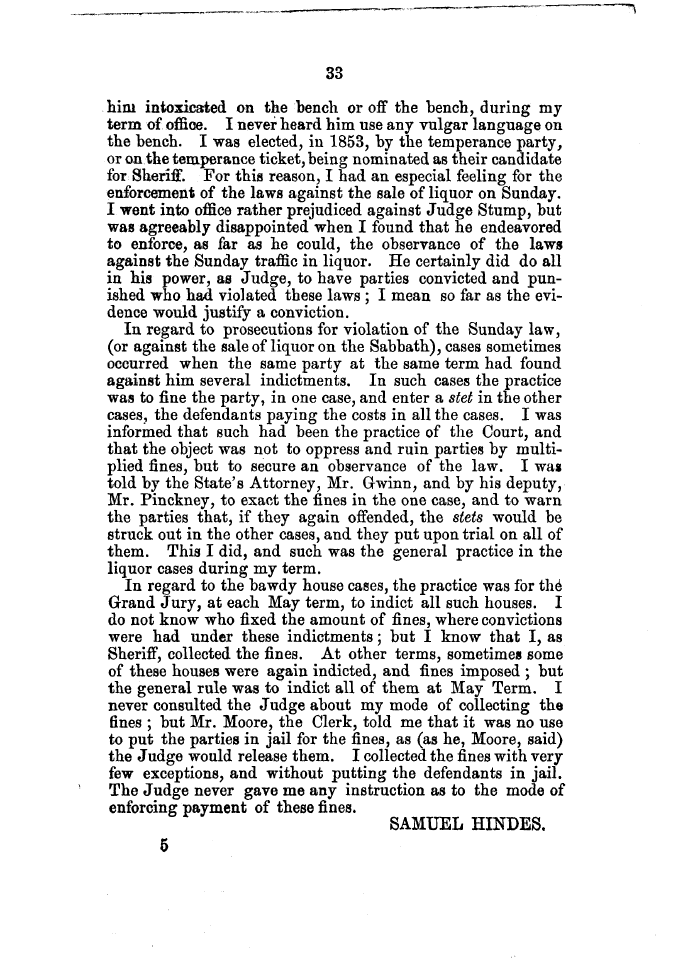|
33
him intoxicated on the bench or off the bench, during my term of office. I never heard him use any vulgar language on the bench. I was elected, in 1853, by the temperance party, or on the temperance ticket, being nominated as their candidate for Sheriff. For this reason, I had an especial feeling for the enforcement of the laws against the sale of liquor on Sunday. I went into office rather prejudiced against Judge Stump, but was agreeably disappointed when I found that he endeavored to enforce, as far as he could, the observance of the laws againsfc the Sunday traffic in liquor. He certainly did do all in his power, as Judge, to have parties convicted and punished who had violated these laws ; I mean so far as the evidence would justify a conviction.
In regard to prosecutions for violation of the Sunday law, (or against the sale of liquor on the Sabbath), cases sometimes occurred when the same party at the same term had found against him several indictments. In such cases the practice was to fine the party, in one case, and enter a stet in the other cases, the defendants paying the costs in all the cases. I was informed that such had been the practice of the Court, and that the object was not to oppress and ruin parties by multiplied fines, but to secure an observance of the law. I waź told by the State's Attorney, Mr. Grwinn, and by his deputy, Mr. Pinckney, to exact the fines in the one case, and to warn the parties that, if they again offended, the slets would be struck out in the other cases, and they put upon trial on all of them. This I did, and such was the general practice in the liquor cases during my term.
In regard to the bawdy house cases, the practice was for the^ Grand Jury, at each May term, to indict all such houses. I do not know who fixed the amount of fines, where convictions were had under these indictments; but I know that I, as Sheriff, collected the fines. At other terms, sometimes some of these houses were again indicted, and fines imposed ; but the general rule was to indict all of them at May Term. I never consulted the Judge about my mode of collecting the fines ; but Mr. Moore, the Clerk, told me that it was no use to put the parties in jail for the fines, as (as he, Moore, said) the Judge would release them. I collected the fines with very few exceptions, and without putting the defendants in jail. The Judge never gave me any instruction as to the mode of enforcing payment of these fines.
SAMUEL HINDES.
|

